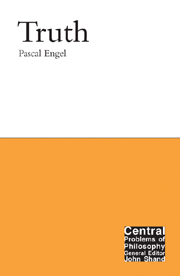3 - Minimal realism
Summary
We have reached a sort of impasse. Our review of the various classical theories of truth has led us to suspect either that truth is indefinable or that there is no “substantive” definition of it, hence that only a deflationist account of truth can be given. But deflationism is inadequate and has unwelcome potential consequences. There is thus a tension between the fact that there does not seem to be much more to say about truth than what the equivalence or disquotational schema tell us, and the fact that these obviously do not tell us enough about the concept. But if we pull in the direction of the second intuition, shall we not be obliged to come back to some version of a substantive theory? To put it in Kantian terms, we have a sort of antinomy here, the antinomy of minimalism:
Thesis: truth is a more substantive concept than what deflationism says it is
Antithesis: truth is less substantive than what substantive theories (realist and anti-realist) say it is
The thesis seems to lead us to a reversal to a substantive position; the antithesis to a reversal to a deflationist position. Is there some stable middle ground? In philosophy, such intermediary positions (for instance, a form of non-reductive-materialism about the mind/ body problem, or compatibilism about freedom and determinism) have proved hard to sustain, precisely because of the permanent pull in opposite directions.
- Type
- Chapter
- Information
- Truth , pp. 65 - 98Publisher: Acumen PublishingPrint publication year: 2002

